China capable of handling impact of US QE exit
Updated: 2013-06-25 19:50
(Xinhua)
|
||||||||
BEIJING - A recent rise in China's inter-bank lending rates triggered concerns that the country may face a credit crunch, and such worries have aggravated after the rates surged to record highs following remarks by US Fed Chairman Ben Bernanke on the possible exit of quantitative easing (QE).
Despite the jitters, China is well-equipped to avert risks that may arise from US moves to taper monetary stimulus, as possible outflow of capital will have limited impact on China.
With ample measures at hand to defuse scare over what appeared to be strained liquidity in recent weeks, the People's Bank of China chose not to ease the credit line. The response is believed to be aimed at re-directing funds away from speculative trading to the real economy.
The ongoing global financial crisis has profoundly changed the external environment of the Chinese economy. If a lesson should be learnt from the current financial crisis, it is to attach a leash to money supply. Allowing excessive liquidity in the financial sector instead of in real economy will result in financial disasters sooner or later.
As observed by many economists, China saw significant growth in bank loans in the first five months this year. However, the real economy did not seem to have benefited from this credit boom.
Such a background better explains why China's central bank did not extend a helping hand to commercial lenders, which allegedly concentrated large sums of resources on speculative investment.
In addition to showing the government's determination to contain financial risks, the central bank's refusal to inject cash also signals that Chinese policy-makers are ready to face short-term pains such as market turbulence and economic slowdown while working to craft a more sustainable growth structure.
There is no doubt that the possible exit of quantitative easing will continue to weigh on benchmark indexes in many countries and influence global capital flow.
But China, with its sound economic fundamentals and relatively better insulation from global financial turmoils than many other emerging economies, is expected to consolidate its financial risk management ability and to make full use of financial tools to promote a shift of economic model.
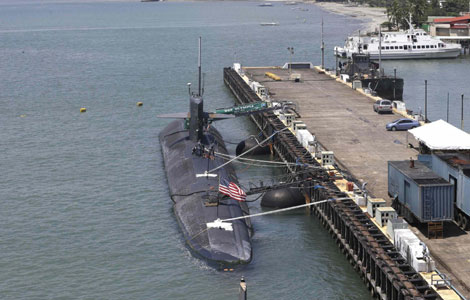
 Philippine, US start Naval exercise in S China Sea
Philippine, US start Naval exercise in S China Sea
 Supreme Court gay rights ruling celebrated across US
Supreme Court gay rights ruling celebrated across US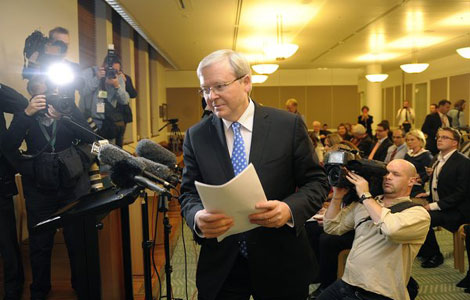
 Rudd returns as Australian PM after Gillard
Rudd returns as Australian PM after Gillard
 Brazil protests intensify before Confed Cup semifinal
Brazil protests intensify before Confed Cup semifinal
 Long lost weekend
Long lost weekend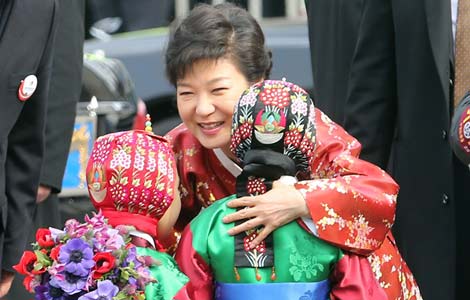
 Park ready to charm China
Park ready to charm China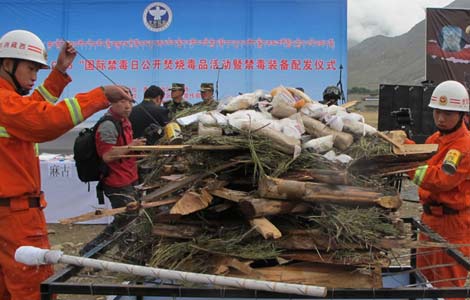
 Prices climb as police crack down
Prices climb as police crack down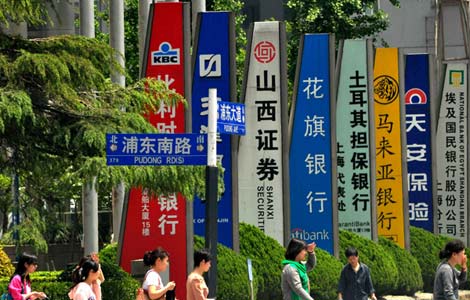
 China 'most promising' in FDI
China 'most promising' in FDI
Most Viewed
Editor's Picks

|

|

|

|

|

|
Today's Top News
Proposed law puts curbs on family visas
Markets will stay volatile, continue to struggle: Expert
Promising outlook on US, China investment
US adoptees visit Chinese roots
Ecuador refutes Washington Post accusation
IBM to make Chinese job cuts
PBOC ends credit crunch, to go further
Snowden still at Moscow's airport, asylum pending
US Weekly

|

|







